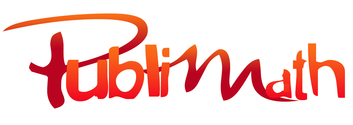History and Epistemology in Mathematics Education: Proceedings of the Seventh European Summer University. Promoting an interdisciplinary teaching through the use of elements of Greek and Chinese early cosmologies . p. 571-583.
(La promotion d'un enseignement interdisciplinaire, via l'utilisation d'éléments de cosmologies grecques et chinoises anciennes.)
Une version texte intégral est en téléchargement sur le site Bibliothèque numérique des IREM et de l’APMEP Télécharger
Auteur : Hosson Cécile de
Résumé
L’histoire des sciences est une source d’inspiration pour élaborer des séquences d’enseignement interdisciplinaires, conformément aux recommandations des programmes. Abstract Most of the curricula, at an international level, encourage an interdisciplinary approach for the teaching of both mathematics and sciences. In this
Cet article analyse certains aspects de l’interrelation entre mathématiques et physique, leur histoire et leur enseignement.
L’auteure présente des exemples de séquences d’enseignement : « la terre est sphérique », « on peut mesurer les distances cosmologiques » menées en classe ou en formation d’enseignants.
context, interdisciplinarity is often promoted as a fruitful way of making students
aware of the links existing between mathematics and the sciences. History of science can be considered as an inspiring ground for the elaboration of teaching sequences where mathematical and scientific knowledge and skills are integrated. In this paper, examples of such integration are presented through the use of two distinct historical episodes dealing with Greek and Chinese early cosmologies. From these cosmologies teaching sequences (involving historical elements mixed with non-historical ones) have been elaborated in order to provide students with elementary astronomical
knowledge dealing with scientific and mathematical knowledge and skills.
Notes
Chapitre des Actes de la septième l’université d’été (ESU 7).
Données de publication
Éditeur Aarhus University Copenhague , 2015 Format 17 cm x 23 cm, p. 571-583 Index Bibliogr. p. 581-583
ISBN 87-7684-737-3 EAN 9788776847371
Public visé chercheur, enseignant, formateur
Type chapitre d’un ouvrage Langue anglais Support papier
Classification
